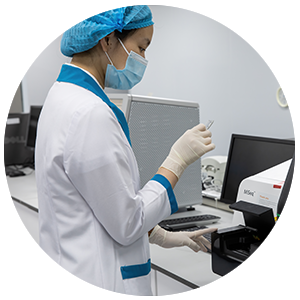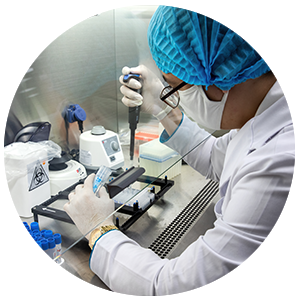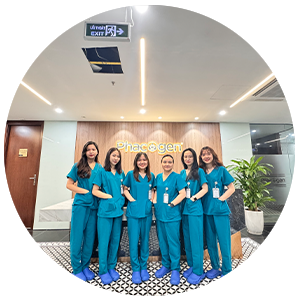Cancer is a disease related to uncontrolled growth of cells in the body. After skin cancer, breast cancer is the most common cancer diagnosed in women in the United States.
- BASIC INFORMATION ABOUT BREAST CANCER
- What is breast cancer?
- Types of breast cancer
- NORMAL BREASTS AND SYMPTOMS OF BREAST CANCER
- What are the characteristics of normal breasts?
- Symptoms of breast cancer
- Tumor in the breast
- RISK FACTORS FOR BREAST CANCER
- Uncontrollable risk factors
- Risk factors can be controlled
BASIC INFORMATION ABOUT BREAST CANCER
Cancer is a disease related to uncontrolled growth of cells in the body. After skin cancer, breast cancer is the most common cancer diagnosed in women in the United States.
.
Each year, in the United States, about 264,000 cases of breast cancer are diagnosed in women and about 2,400 cases in men. Of these, the death rate from breast cancer in women is 42,000 people and in men is 500 people. Black women with the disease have a higher mortality rate than white women.
.
What is breast cancer?
Breast cancer is a disease related to uncontrolled growth of cells in the breast. There are different types of breast cancer, depending on the type of cells that have turned into cancer cells.
.
The breast consists of three main parts: lobules, milk ducts and connective tissue. The lobules are where milk is produced. Milk ducts help transport milk to the nipple. Connective tissue (including fibrous tissue and fatty tissue) surrounds and binds cells together. Breast cancer can appear in different parts of the breast. Most types of breast cancer originate in the milk ducts or lobules.
.
Breast cancer can spread through blood vessels and lymph vessels. When breast cancer spreads to other parts of the body, it is called metastatic cancer.
.
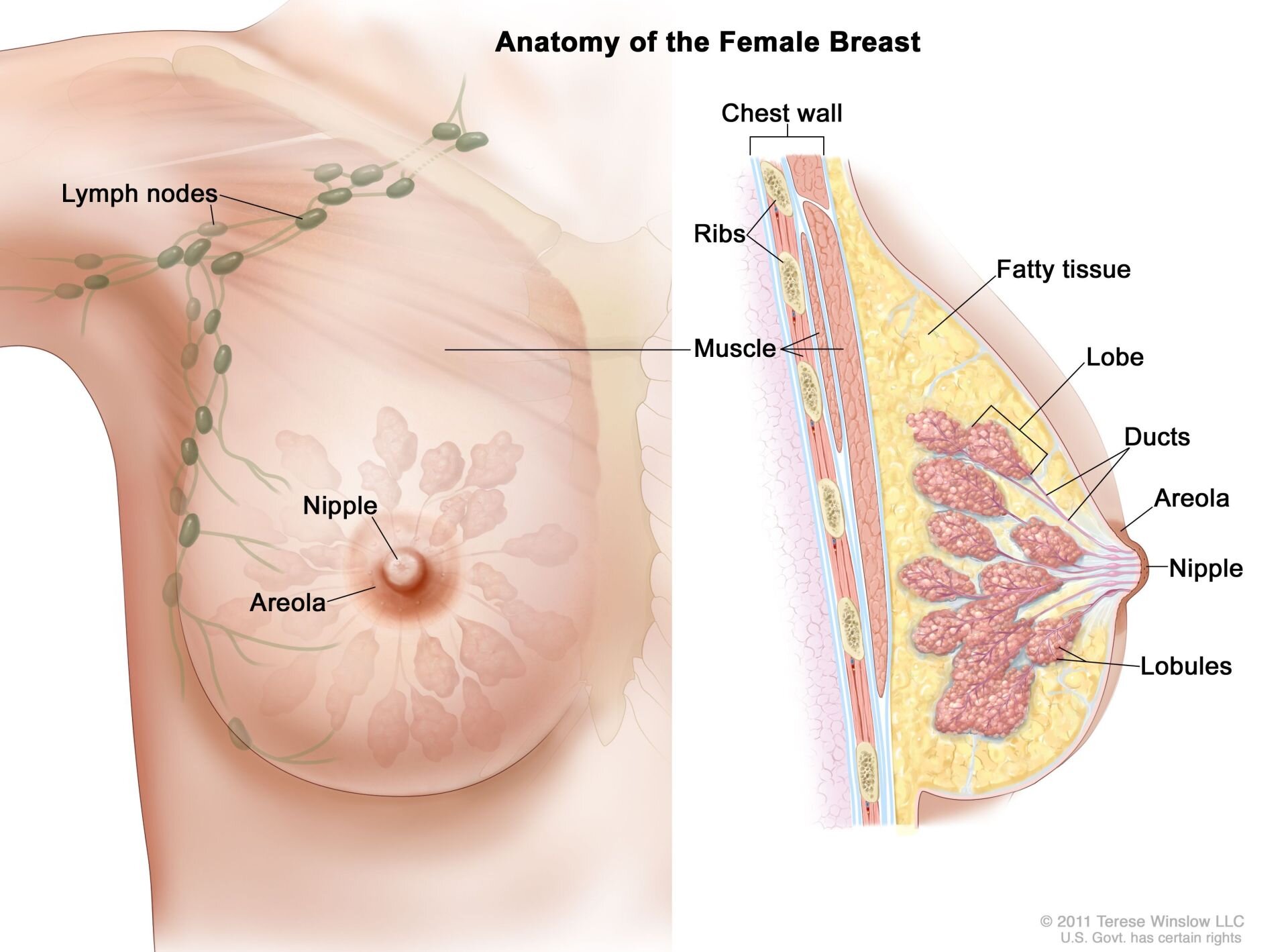
.
Types of breast cancer
Common types of breast cancer include:
- Invasive ductal carcinoma of the breast: Cancer cells start from the inside and invade the outside of the milk ducts and connective tissues, then metastasize to other parts of the body.
- Invasive lobular carcinoma: Cancer cells start in the lobules of the breast. The cancer cells then spread to the lymph nodes and other parts of the body.
- Ductal carcinoma in situ (DCIS) can lead to invasive breast cancer. The cancer cells are only in the lining of the milk ducts and have not spread to other tissues in the breast.
.
Additionally, there are several other less common types of breast cancer, such as: Paget's disease of the nipple (a rare type of cancer that appears as red patches that resemble psoriasis or eczema on the nipple and areola), medullary breast cancer (a type of invasive cancer that has the ability to grow and spread to other parts of the body), and inflammatory breast cancer (a rare and dangerous form of breast cancer, This disease often appears as a rash or irritated skin).
.
NORMAL BREASTS AND SYMPTOMS OF BREAST CANCER
What are the characteristics of normal breasts?
Normal breasts do not have uniform standards. Most women say their breast shape is irregular. The appearance and feel of your breasts can be affected by factors such as the menstrual cycle, postpartum birth, weight changes and use of certain medications. Breasts also easily change as age increases.
.
Symptoms of breast cancer
Each patient may present with different symptoms. Some patients have no clinical symptoms.
.
Some warning signs of cancer include:
- Lumps appear in the breast or armpit.
- Increased breast skin thickness or swelling of part of the breast.
- Breast skin is irritated or wrinkled.
- Red or peeling skin in the nipple or breast area.
- Nipples recede or change shape.
- Abnormal discharge from the nipple, especially fluid mixed with blood.
- Increase in size or change in breast shape.
- Pain in any part of the breast.
.
These symptoms may be signs of diseases other than cancer. Therefore, if you have any suspicious signs or symptoms, see your doctor for timely examination and diagnosis.
.
Tumor in the breast
There is a tumor in the mammary gland but it is not breast cancer.
Lumps in the breast can suggest many different diseases, which may include cancer. However, most lumps in the breast are not cancerous but are caused by other medical problems. Fibrocystic breast syndrome and cysts change the mammary gland, causing lumps and breast pain that are not cancerous. Cysts are small sacs filled with fluid.
.
RISK FACTORS FOR BREAST CANCER
Studies have shown that the risk of breast cancer depends on a combination of factors. The main factors that influence the risk of disease include gender and age. Most cases of breast cancer are detected in women 50 years of age and older.
.
Some women have risk factors, but not all will develop breast cancer. However, there are women without any known risk factors who develop breast cancer. If you have risk factors for breast cancer, talk to your doctor about medical solutions to reduce your risk and get timely breast cancer screening.
.
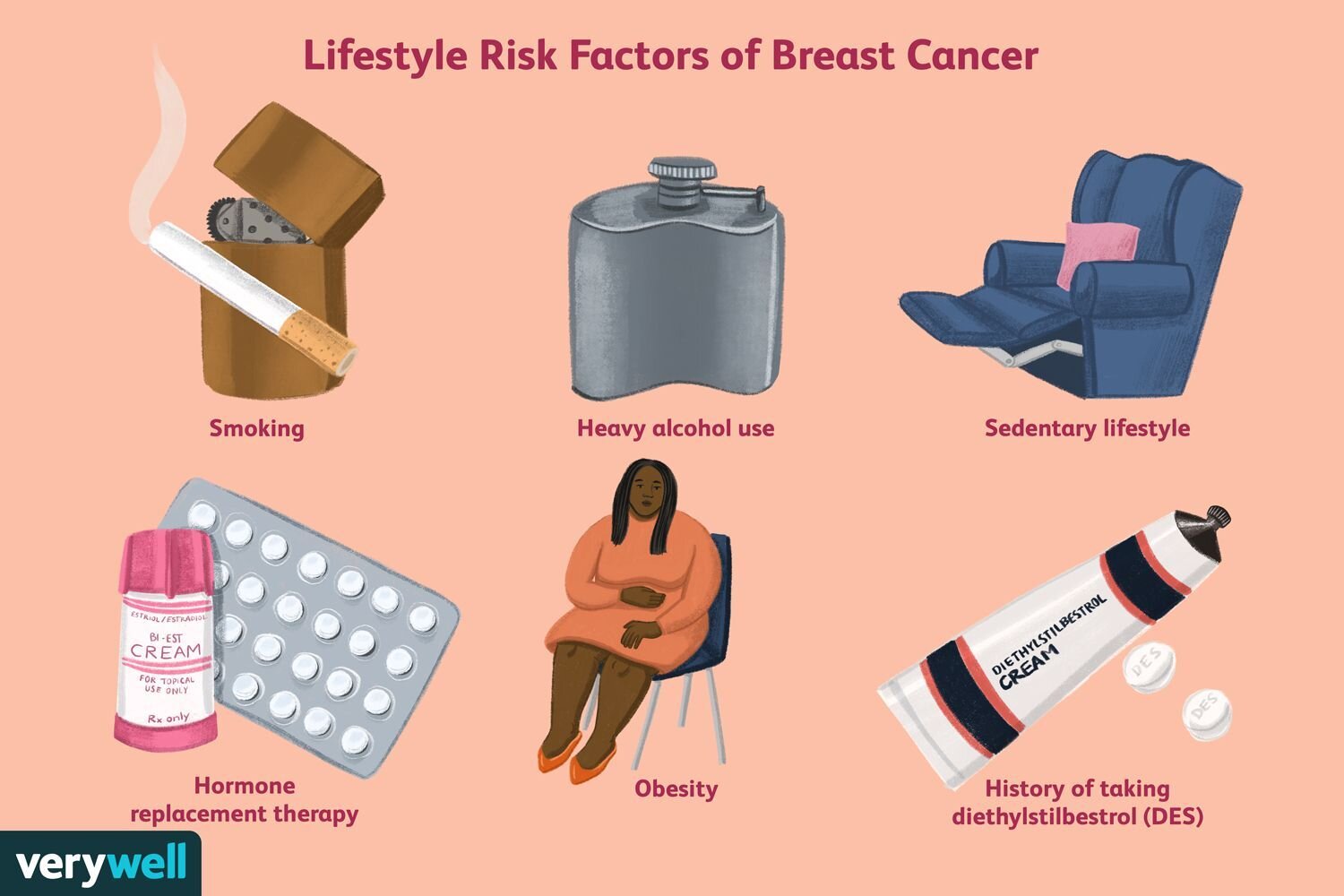
.
Uncontrollable risk factors
Age: The risk of breast cancer increases with age. Most cases of breast cancer are detected after age 50.
- Gene mutations: Women who carry genetic changes (mutations) in certain genes such as BRCA1 and BRCA2 have a higher risk of breast and ovarian cancer.
- Hormonal changes: Early puberty before age 12 or late menopause after age 55 causes women to be exposed to hormones longer, increasing the risk of breast cancer.
- Have dense breast tissue: Women with dense breast tissue have a higher risk of breast cancer because dense breasts have more connective tissue than fatty tissue, making it difficult to see tumors on mammograms. mammogram.
- If you have ever had breast cancer or some breast-related diseases such as breast hyperplasia or lobular carcinoma in situ, you are at risk of developing breast cancer.
- Family history of breast cancer or ovarian cancer. Having a family member, such as a parent, sibling, or child, with breast or ovarian cancer increases your risk of getting breast cancer.
- Prior radiotherapy: The risk of breast cancer increases if you have previously had radiotherapy to the chest for another type of cancer.
- History of exposure to diethylstilbestrol (DES). DES was used to prevent miscarriage in some pregnant women in the United States from 1940 to 1971. Women who took DES or whose mothers took DES during pregnancy have an increased risk of breast cancer.
.
Risk factors can be controlled
- Physical activity: Little or no physical activity increases the risk of breast cancer.
Overweight or obesity: Being overweight or obese, especially after menopause, increases the risk of breast cancer.
Use of hormone replacement therapy: Using certain types of combined hormone replacement therapy after menopause or using certain birth control pills may increase the risk of breast cancer.
- Reproductive history: First pregnancy after age 30, not giving birth or not breastfeeding can increase the risk of breast cancer.
Drinking alcohol: The risk of breast cancer increases with higher levels of alcohol consumption.
.
Studies show that other factors such as smoking, exposure to carcinogens and changes in other hormones due to night shift work can also increase the risk of breast cancer.


